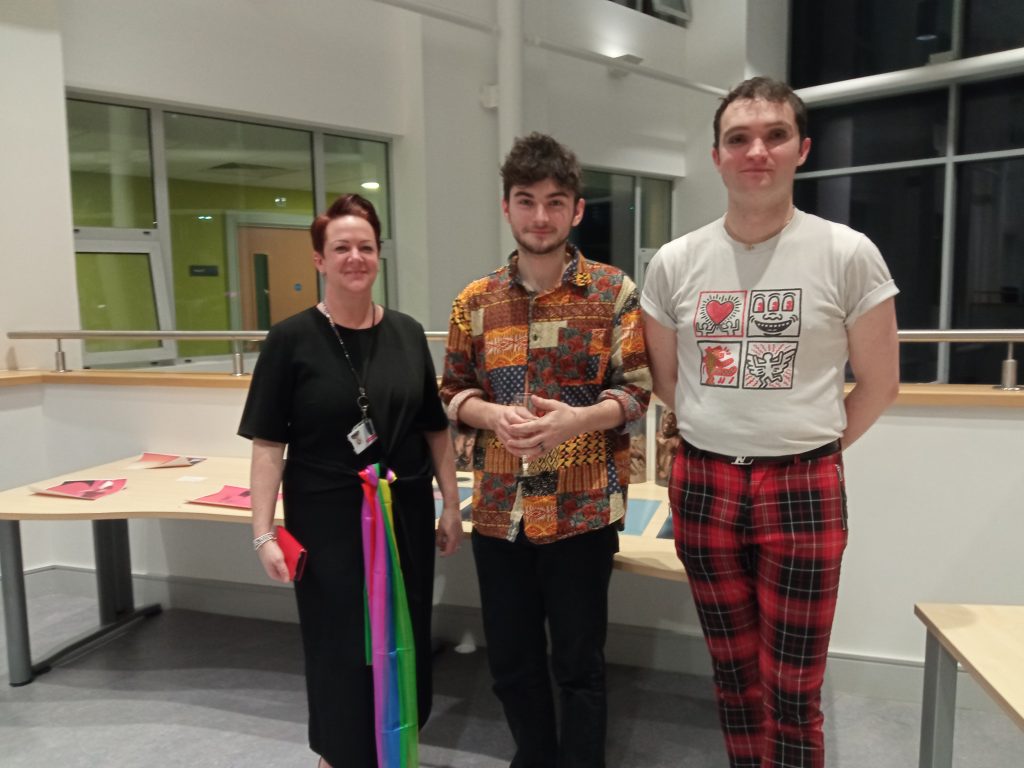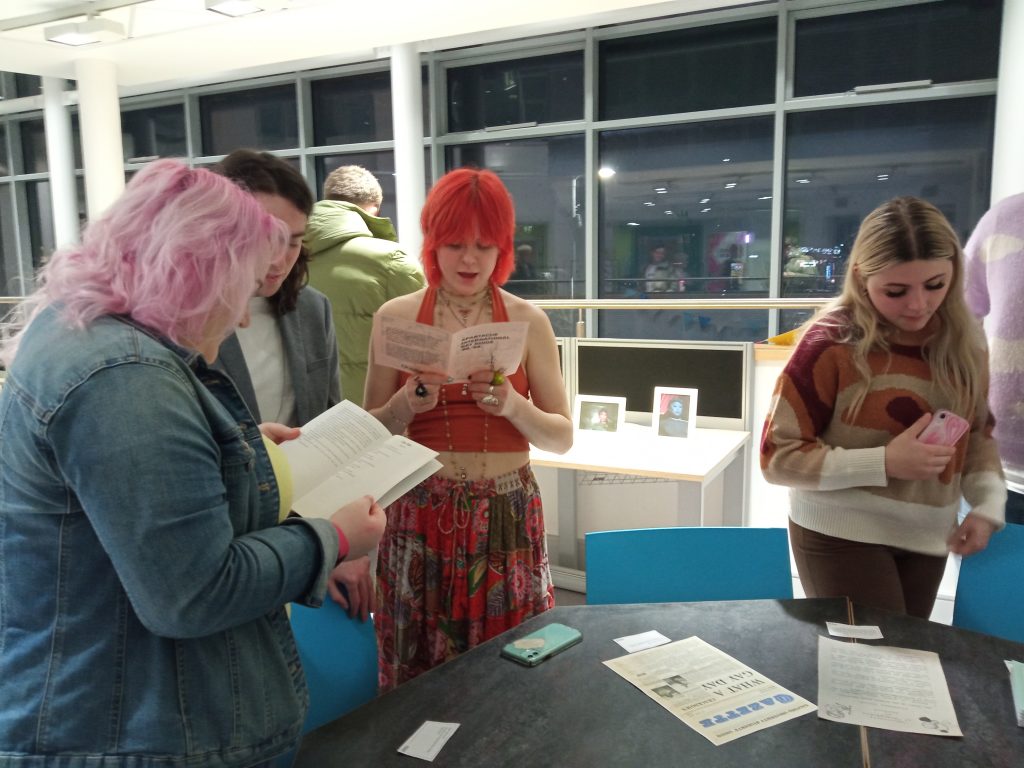An art exhibition at Swinton Gateway provided the finale to LGBT History Month by highlighting the talent of marginalised communities and their fight to keep their jobs amid an unpredictable pandemic.
Ricki Hewitt, 28, head of people for Salford Pride, who helped to host the event, said: “Reflecting the fact that we just have come out of a pandemic, a lot of LGBT+ artists haven’t had as much work. They have been out of work for a long time.
“And their work has been hidden away in the shadows. That’s something that the LGBT community faced for a long time, so we wanted to celebrate their art as part of LGBT history month.”

Salford City Council members also participated in the event to show support, and strengthen the links between Salford Pride and the council.
Ricki said: “Salford has a good standing background for being a great place for LGBT+ people, we’re on the doorstep of one of the most diverse cities in the world Manchester, and Salford itself is also a great and diverse place with lots of different and diverse sorts of people.
“So, I hope that we see more events like these focused on LGBT+ people across Salford.”
The exhibition featured more than 10 pieces of art, some of them like Abel’s ‘Portrait of Derek Jarman’ inspired from real LGBT artists that left a mark in their communities.
The pieces also explored ideas of mental health, activism, history, identity, and even the pandemic, with a short movie: ‘A love letter’ being made to showcase the vulnerabilities of being an artist during Covid.

Joshua Hubbard, artist and director, created the film ‘A love letter’ by showing themselves dancing and performing while narrating audio, from countless artists who were interviewed to tell stories of their struggles during the pandemic.
Joshua accused the government of leaving artists behind throughout the pandemic.
They said: “We just felt like it yet again, we are the last people to be thought about even though we’re like a multibillion industry.

“We’re getting no support, and it’s always the case, people think you don’t have a proper job or you can’t make a living from it or you can’t be taken seriously.
“But yet, it’s like, okay, then you try and survive a pandemic with no television, no art, no books, no film, no computer games, because we created all those and we’re literally receiving nothing.”
The pandemic limited the spaces in which artists like Joshua could perform, and it affected their creativity and mental health. The struggle was worse for LGBT+ communities and people from working class backgrounds.

Joshua said: “The reason I made the film A Love Letter – it was a love letter to freelance artists and performers that I was in a similar position to.”
Salford Pride hopes to host more local and bigger events throughout the year, expanding the community’s knowledge of LGBT issues while providing a space for people to come together and share their interests.
















Recent Comments